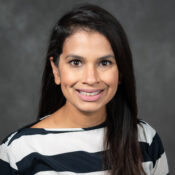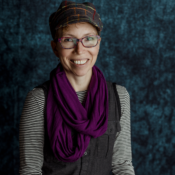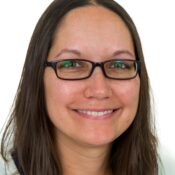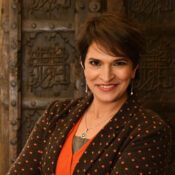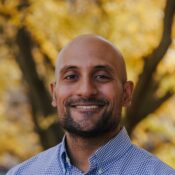The Islamophobia Sniff Test: Recognizing Islamophobia On College Campuses and the Impact It Has On Our Community
Day Two: November 14, 2024 | 10:45 a.m. – 12:00 p.m., Marquee Theater
Session Video
Session Description
Islamophobia and anti-Arab racism are deeply rooted prejudices that target Muslims and individuals perceived as Muslim, such as Arab Christians and non-Muslim South Asians. They fuel hate speech, hostility, hate crimes, and intolerance, often manifesting as discrimination, harassment, abuse, and intimidation. In the United States, Islamophobia and anti-Muslim racism have been used to justify concerning policies, including mass surveillance, guilt by association, and collective punishment of members of the Muslim community. And on campuses, inequitable policies have also led to harassment and bigotry that allows for unsafe conditions for Muslim and Arab students. During this session, UW Muslim and Muslim-Allied Faculty and Staff will share research on the origins of Islamophobia in the US, societal repercussions that has led to inequities for Muslim and Arabs, research on how it has manifested at UW-Madison, and ways the campus community can foster inclusion and belonging so everyone can thrive.
Session Objectives
- Explain the origins of Islamophobia in the US, originating from anti-Palestinian bigotry, evolving as anti-Arab racism, and later as widespread Islamophobia.
- Describe case examples of how collective punishment has allowed for justification of dehumanization and deprivation of rights typically afforded to other individuals.
- Evaluate results from the 2021 Campus Climate Survey, a fall 2023 listening session with Muslim and Arab students, and 2023 Color of Drinking study, in order to name how Muslims and Arabs at UW-Madison feel.
- Identify factors that influence inclusion and belonging for Muslim and Arab Americans at UW Madison.
Speakers
Wajiha Akhtar
Dr. Wajiha Akhtar is the assistant director of the University of Wisconsin Population Health Institute. She specializes in utilizing epidemiological methods to assess policies associated with community-level outcomes, assessing large secondary datasets for evaluation, and engaging with targeted stakeholders for the purpose of decreasing health inequities within our society. Dr. Akhtar received her bachelor of science degree in biomedical engineering from the University of Miami, and her master’s in public health and doctorate in epidemiology from the University of Florida. She serves on the Board of Directors for One City Schools in Madison, Wisconsin, and HEART, a national non-profit promoting sexual health and sexual violence literacy in Muslim communities. Dr. Akhtar is part of the Muslim and Muslim-Allied Faculty and Staff group at UW-Madison. She combines her work in health equity and her personal experience with Islamophobia to inform the work being done at UW–Madison.
K.D. Thompson
K.D. Thompson is Evjue-Bascom Professor of humanities, professor of religious studies, and author of Muslims on the Margins: Creating Queer Religious Community in North America (NYU Press, 2023).
Noreen Siddiqui
Dr. Noreen Siddiqui (she/her/hers) is the assistant director, identity center of the Multicultural Student Center. In this role, she leads the team running the APIDA Student Center, the Black Cultural Center, the Indigenous Student Center, and the Latinx Cultural Center. In addition to working in multicultural student affairs, Dr. Siddiqui has worked in LGBTQ student services, residence life, academic advising, student assistance, and student conduct. She identifies as a biracial (South Asian and White) Muslim woman. As an undergraduate, she studied Russian and journalism at the University of Missouri – Columbia. She has a master’s degree in education from Iowa State University and a PhD from Marquette University. Dr. Siddiqui’s research focuses on food insecurity among college students. She has also taught courses on race in the U.S., gender norms, and social inequities in K-12 education.
Asifa Quraishi-Landes
Asifa Quraishi-Landes specializes in comparative Islamic and U.S. constitutional law, with a current focus on modern Islamic constitutional theory. She is a 2009 Carnegie Scholar and 2012 Guggenheim Fellow. Recent publications include “Legislating Morality and Other Illusions about Islamic Government” (in Locating the Shari’a: Legal Fluidity in Theory, History and Practice, Nathan French & Sohaira Siddiqui editors), and “Healing a Wounded Islamic Constitutionalism: Sharia, Legal Pluralism, and Unlearning the Nation-State Paradigm (in Transformative Constitutionalism, Boaventura De Sousa Santos, editor). Currently, she is working on a book manuscript tentatively titled “Three Pillars Constitutionalism” in which she proposes a new model of Islamic constitutionalism for today’s Muslim-majority countries. Professor Quraishi-Landes co-founded the Muslim and Muslim-Allied Faculty and Staff Group at UW–Madison.
Faran Saeed
Dr. Faran Saeed is a practitioner-scholar whose research focuses on Muslim identity development and Islamophobia. His work has been featured by ACPA, NASPA, Diversity Abroad, Higher Ed Live, AERA, ASHE, and the Student Affairs Collective. In the past he has sat on the NASPA leadership team of the Spirituality and Religion Knowledge Community and was part of the Board of Directors of Convergence ,a national organization focused on enhancing institutional climates for religious, secular, and spiritual identities through policy and practice. He currently serves as the Director of the Mercile J. Lee Scholars Program and previously served as the Director of Diversity, Equity, and Inclusion (DEI) at the University of Wisconsin-Madison where he oversaw global DEI within the International Division. Prior to working at the University of Wisconsin-Madison, he oversaw the Ettihad Cultural Center, a center that supports students, faculty, and staff from the North African, Middle Eastern, and South Asian communities.
